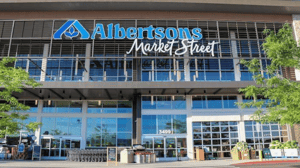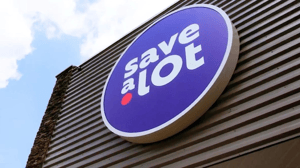What’s Love Got to Do With It?What’s Love Got to Do With It?
Exclusive research reveals the nation’s most influential grocery suitors.
January 7, 2019

Welcome to Winsight Grocery Business’ second annual Most Trusted U.S. Food Retailers benchmark study, which robustly reinforces the age-old platitude that love cannot exist without trust. But when considering the sheer volume of options consumers now have when buying groceries, the trust-love continuum that’s long defined the most attractive qualities of a primary retailer has been upended with a new slate of traits for consumers to weigh.
Inspired by the heightened role trust plays as an integral business imperative for today’s most successful food retailers, we once again tapped BrandSpark International to field our follow-up “grocery trust barometer,” which was compiled from responses of a national panel of 4,260 U.S. grocery shoppers (69% women/31% men).
Insights for our 2019 Most Trusted Retailers’ report captured consumer perceptions of 60 grocery banners across the country—a full 25 of which are attracting at least 1% of American shoppers as their primary store. However, with the ferocity of competition showing no signs of abatement, “The challenges for primary grocery retailers are not getting easier, as the giants—Walmart, Costco and Target—continue to make gains in grocery,” explains Philip Scrutton, BrandSpark’s VP of shopper insights, with whom we worked closely to bring our signature report to life.
Grocery e-commerce emerged in big way in our 2018 study, with three in 10 shoppers having ordered groceries online in the six-month measuring period through September 2018. Nevertheless, most folks “are still comfortable with the in-store experience and are typically ordering from familiar stores and opting for curbside pickup,” observes Scrutton, pointing to Amazon Fresh, which has been used by over 4% of survey participants, despite only being available in select markets.
When asked what he considers to be of utmost importance about the results of our second-year joint census, Scrutton says “quality products, particularly fresh foods,” still matter most when sizing up shoppers’ value specifications. But what about price?
“It’s interesting—many of this year’s trust leaders don’t necessarily have the absolute lowest prices, but their biggest fans feel they offer the best overall value.” That said, Walmart and the club stores, “led by Costco, continue to capture more grocery occasions from shoppers attracted by the lowest prices on specific brand name goods,” Scrutton notes.
And though most consumer panelists reported being largely content with their grocery shopping routines, Scrutton says “atmosphere clearly makes a difference” with modern, well-maintained stores factoring stronger as a desirable attribute.
Loyalty programs are also deemed as adding value to a more engaged base of reward-seeking shoppers, which is good news for retailers’ as a means of further enriching their big data bases.
Another key factor Scrutton sees as significant are the “secondary drivers, which can make or break the experience, including ease of parking, clean washrooms and the convenience of self-checkout.”
An in-depth look at the results of WGB’s and BrandSpark’s Most Trusted Retailers market study probing which retailers are most effectively securing the heartstrings of the widely courted U.S. food shopper continues herein.
About the Author
You May Also Like






